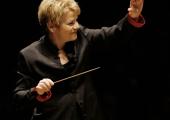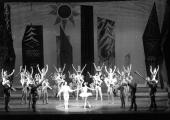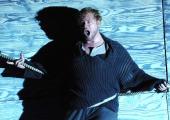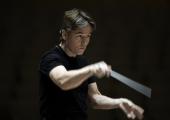Frank Zappa's 200 Motels, Royal Festival Hall
This exuberantly chaotic musical portmanteau is much more than a period curiosity
One of the joys of the Southbank Centre’s year-long The Rest Is Noise series has been the opportunity to hear some unusual period pieces among the more standard repertoire. In the case of 200 Motels it is a concert premiere for a genre-bending work which was pulled from its 1971 Albert Hall slot due to complaints about its obscene content.









